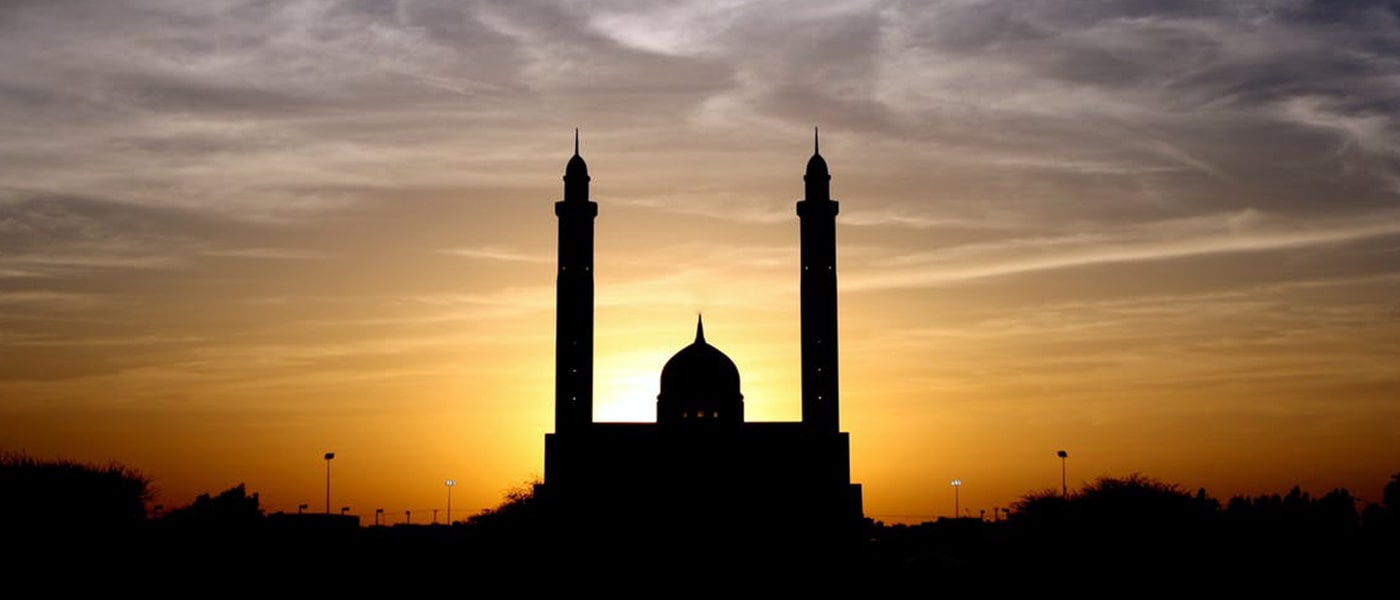

The Relationship between Axioms and Practical Principles in Islam
After introducing the axioms of Islam and finding faith in them, the next step in this life-changing journey is to accomplish certain commands as a result of those beliefs which will lead us to a life of eternal satisfaction and bliss. Now one might wonder, what relates those fundamental principles or axioms – i.e., Monotheism (Tawhid) [1], Prophethood (Nubuwwah), and Afterlife (Ma’ad) – to practical principles in Islam? Are they even related? If yes, how is this relationship justified? What comes next will hopefully provide an answer to these questions.
What is religion?
To have a better understanding of the relationship between the axioms and practical principles in Islam, we should first fully grasp the meaning of religion. Religion, in one sense, is defined as the collection of a series of fundamental and necessary beliefs -axioms- along with some practical commandments. The beliefs are the foundations, and the instructions are the means of putting the axioms into practice that may include juridical, legal, social, ethical, spiritual, and political rules and regulations.
The Elements of Religion
Having the definition of religion in mind, we can consider two elements or constituent parts for it: 1. Beliefs (axioms), 2. The practical commandments and instructions (practical principles). Typically, since the instructions are devised with regard to the axioms, then these principal beliefs are considered as primary, a prior, and foundational, while the practical commands become subsidiary, ancillary, and as the pillars built on those foundations.
In addition, according to the Islamic doctrine, the prerequisite of this religion is one’s faith in the existence and Oneness of God as well as in the Prophethood of Muhammad (PBUH&HP) and the coming of the Judgment Day; that no one deserves worshiping other than Allah Almighty, Prophet Muhammad (PBUH&HP) has been chosen for Prophethood by Him as the last prophet and that this life is surely followed by another one.
The first two are, as a matter of fact, the content of what we call Shahadatain or the two testimonies, that by uttering them, one will enter the world of Muslims. But, this is only a gateway to Islam and a platform for further practices that will ultimately make one a perfect Muslim and believer.
The Nature of the Relationship between the Elements of Religion
We might suppose many kinds of relationship between the elements - Axioms and Practical principles - of religion, including the pearl and shell relationship, the innate and parallel relationship, the root and stem relationship.
One case scenario is to consider the relationship between these two constituent parts like a pearl and its shell; that is one of these parts is primary, and the other secondary, and what matters is the primary one. In other words, it is enough for one to find faith in the axioms of religion and the practical principles are only there for us to reach those axioms; that being done, they have fulfilled their purpose, and there is no need for them anymore.
Analogously, the shell does not worth anything by itself; its only importance is to keep the pearl safe. Anyone who looks for a shell is actually after the pearl in it, and once he finds it, he will throw away the shell instantly.
Another case scenario regards this relationship of parallel and innate kind. It claims that religion has three aspects: Islamic law, the path, and truth. The axioms of religion are its truth, while the law and path - which are the practical principles of religion - only provide the way to reach the truth. Thus, like the previous assumption, if someone reaches the truth, then he will no more need the law and the path.
But what is the most proper relationship between these two? This association is neither like pearl and shell nor of parallel and innate kind. While we believe in the primacy of the axioms, we don’t consider the practical principles of religion as marginal and unimportant; there is a mutual relationship between practical doctrines of Islam and theoretical knowledge of religion.
If there is any suitable way of elucidating this issue metaphorically, that would be through the relationship of the root and stem of a tree. In this kind of relationship, no part can be considered as independent of the other, they closely correlate. Believing in certain axioms necessitates the manifestation of a particular demeanor which requires the reinforcement of the belief in those fundamental principles. Similarly, every root has its own kind of stem and fruit that will grow and be nourished by the sun and ultimately fortify the root.
The Difference between Axioms and Practical Principles in Islam
From what we have said so far, it is crystal clear that practical principles require active practice whereas axioms need knowledge and firm belief. Accordingly, in the case of the axioms imitation – no matter from who - is absolutely forbidden and they should be accepted through careful investigation and precise reasoning individually, while practical principles are mainly practiced with a degree of submission to God; the main purpose of these rules is the action itself.
That is why it is said that knowing and understanding the axioms is an “individual duty” – i.e. the duty that every single Muslim is bound to perform, e.g., performing Salat - for each Muslim, while being familiar with the practical principles is a “sufficiency [2] duty” – i.e., the duty that will lose its obligation if a group of Muslims has performed it.
It is noteworthy that the actions and behaviors that practical principles suggest will not result in our spiritual and psychological revolution and development unless we have a thorough understanding of the axioms and have accepted them rationally. In other words, the religion is constituted of certain principles which are its intellectual basis and requires its followers to exhibit specific behaviors; these actions root back in those axioms, and the axioms are prior to them.
What are the Practical Principles?
Let’s have a brief look at the ten practical principles of the religion of Islam:
Prayer (Salat): The performance of the daily prayer five times a day with a specific form.
Fasting (Sawm): The act of voluntarily preventing oneself from eating and drinking during a particular part of the day – from the time of Dawn Prayer (Salat al-Fajr) until Dusk prayer(Salat al-Maghrib).
The Holy Pilgrimage (Hajj): An annual Islamic pilgrimage to Mecca, and a mandatory religious duty for Muslims that must be carried out at least once in their lifetime by those who are physically and financially capable of undertaking the journey, and can support their family during their absence.
Alms-tax (Zakat): Paying an exact amount of money that has become obligatory through the rules of Sharia in order to be used in favor of the people in need or for certain beneficial deeds in society.
Khums: A money proportional to one fifth that every person should pay based on some certain criteria.
The Holy Struggle (Jihad): Technically, a special kind of attempt, which includes sacrificing one’s life and property primarily for the sake of Allah, elevating and sustaining Islamic beliefs and standpoints. In this sense, Jihad is the act of Defending the Islamic territory against the assaults and intrusions of outsiders and invaders. Literally, this word is defined as the striving of one’s soul against the temptation of the devil and his own whim.
Enjoining what is right (al-Amr bi-l-maʿrūf): To invite other Muslims to goodness and righteousness, with regard to certain conditions and through specific manners.
Forbidding what is wrong (nahy ʿani-l-munkar): To dissuade other Muslims from doing what is wrong, sinful or immoral, with regard to certain conditions and through specific manners.
Expressing Love towards Good (Tawalla): To have a feeling of affection and love, affirmation, submission, and acceptance toward guardianship of Allah, Prophet Muhammad (PBUH&HP), and the twelve Imams.
Expressing disassociation from Evil (Tabarra): having a feeling of disassociation and dislike toward the enemies of Allah, Prophet Muhammad (PBUH&HP) and twelve Imams.
Notes:
[1] That God exists and He is one.
[2] It is enough for this duty to be performed by some people and then be followed by others.
Share This Article

What are Different Kinds of Full Body Ablution and its Rulings?
Full body ablution (Ghusl) refers to an Islamic ritual in which an adult (Mukallaf) Muslim is recommended to wash his/her full body with specific rulings.
In this article, we will explain different types of full-body ablution (Ghusl) and their rulings.
Different types of full-body ablution (Ghusl)
Muslim jurists have driven the rules of full-body ablution (Ghusl) based on different verses of the Quran and different narrations and traditions. The main verse of the Quran that is referred to in deriving the rules of full-body ablution (Ghusl) is the following:
“O you who have faith! Do not approach prayer when you are intoxicated, [not] until you know what you are saying, nor [enter mosques] in the state of ritual impurity until you have washed yourselves, except while passing through. But if you are sick or on a journey, or any of you has come from the toilet, or you have touched women, and you cannot find water, then make your full-body ablution on clean ground and wipe a part of your faces and your hands. Indeed Allah is all-excusing, all-forgiving.” (4:43)
Based on the above verse, Muslim jurists have provided the following rules for full-body ablution (Ghusl):
The obligation of full-body ablution (Ghusl)
Different types of full-body ablution (Ghusl) can be categorized as follows:
1- The obligatory full body ablution (Ghusl) common between men and women:
a) The full-body ablution (Ghusl) for ritual impurity (Janabah)
b) The full-body ablution (Ghusl) for touching a corpse (Mass al-Mayyit)
c) The full-body ablution (Ghusl) given to a corpse (Mayyit)
d) The full-body ablution (Ghusl) that becomes obligatory on the account of a vow (Nazr), oath (Qassam), etc.
2- The obligatory full-body ablution (Ghusl) for women:
a) The full-body ablution (Ghusl) for menstruation (Haydh)
b) The full-body ablution (Ghusl) for lochia (Nifas)
c) The full-body ablution (Ghusl) for irregular blood discharge (Istihadhah) [1]
3- Recommended full body ablution (Ghusl)
There are some specific times that Muslims are recommended to perform full-body ablution (Ghusl), for example, the Friday Full-body ablution (Ghusl-e Jum’ah), or the full-body ablution (Ghusl) that are recommended to perform on specific Islamic occasions such as the nights of decree. (Laylatul Qadr). [2]
How to perform full-body ablution (Ghusl)?
There are two methods to perform full-body ablution (Ghusl) that will be described in this part. The first thing to do before starting the full-body ablution (Ghusl) is to make an intention for it. However, it is not necessary to perform a separate full-body ablution (Ghusl) for different intentions.
If there are several recommended (Mustahab) or obligatory full-body ablutions (Ghusl) to be performed and one performs one full-body ablution (Ghusl) with the intention of performing all of them, it is sufficient. However, if one of them is full-body ablution (Ghusl) of ritual impurity (Janabah) and the intention is made to perform it, it suffices for all other full-body ablutions (Ghusl), although caution is to make the intention for all of them. [3]
The methods of full-body ablution (Ghusl)
1- Sequential full-body ablution (Ghusl-e Tartibi)
In sequential full-body ablution (Ghusl), one must – based on obligatory precaution – first, with the intention of full-body ablution (Ghusl), wash the entire head and neck and then the entire body. It is better to first wash the right side of the body, then the left. If one intentionally or due to being negligent in learning the laws of full-body ablution (Ghusl)does not wash the entire head and neck before washing the body, then based on obligatory precaution his full-body ablution (Ghusl)is invalid. Furthermore, based on obligatory precaution, when performing full-body ablution (Ghusl), it is not sufficient to make the intention of full-body ablution (Ghusl) when moving the head, neck, or body while they are already under the flow of water; rather, the part that one wants to perform full-body ablution (Ghusl)on – on the condition that it is already under the flow of water – must be taken out from under the flow of water and then washed with the intention of full-body ablution (Ghusl). [4]
2- Immersive full-body ablution (Ghusl-e Irtimasi) can be performed in two ways:
a) Instantaneous (Daf’i):
In this type of full-body ablution (Ghusl) water must cover the entire body in one go. However, it is not necessary for the entire body to be out of the water before starting the full-body ablution (Ghusl): rather it will suffice if part of the body is out of the water and the person goes under the water completely with the intention of performing full-body ablution (Ghusl). An example of instantaneous immersive full-body ablution (Ghusl)is when a person, with the int¬ention of performing full-body ablution (Ghusl), dives/jumps into a swimming pool and in doing so completely immerses himself in the water; or, the person may already be partially immersed in the water and he then completely immerses himself with the intention of full-body ablution (Ghusl). [5]
b) Gradual (Tadriji)
In gradual immersive full-body ablution (Ghusl), one must gradually – but in a way that can be commonly considered to be one unified action – immerse his body in water with the intention of full-body ablution (Ghusl). In this type of full-body ablution (Ghusl), it is necessary for each part of the body to be out of the water before it is washed. An example of gradual immersive full-body ablution (Ghusl) is when a person, with the intention of performing full-body ablution (Ghusl), immerses part of his body in a bathtub of water and then takes that part out of the water; then, he immerses another part of his body and takes it out, and so on until all the parts of his body have been immersed. [6]

Water requirements for full-body ablution (Ghusl)
The water that is permissible for full-body ablution (Ghusl) can be Rainwater, Well water, water from spring, sea, or river water, water of melting snow or hail, the water of a big tank or pond. Ghusl is not allowed with unclean or impure water or water extracted from fruit and trees. [7]
References:
- Ghusl
- ablution
- ghusl
- Full body ablution
- obligatory baths
- bathing
- Imam Khomeini, Risalah Tozih al-Masa’el, p. 39-40
Read More

What is the Philosophy of Prayer in Islam? Part 2
Prayer in Islam (Salat) is one of the most important practical principles of Islam [1]. It is a physical, mental and spiritual act of worship consisting of prescribed actions and words. Every action in the prayer in Islam (Salat) is meaningful and if you want to know the Philosophy of Prayer in Islam, we will see what each movement in the prayer means and represents.
The Philosophy of Prayer in Islam
Standing (Qiyam)
The prayer in Islam starts with standing. That is to appear in front of God gently and courtly with your whole heart and body; that is how one demonstrates the respect for others. Having the gaze down in Qiyam demonstrates the modesty towards God. It makes one forget about his\her superiority and helps to overcome his\her arrogance [2]. Also, knowing that one should stand five times a day in front of a superior power, who knows every overt and covert act and behavior, will eventually prevent from evil deeds and sins [2].
Intention (Niyyah) of the Prayer in Islam
We do many things every day, some of which are repetitive and by habit, and we are not even aware of why we are doing them. Prayer in Islam, one of those works, seems to be a physical practice. That is why the prayer must have a Niyyah to prevent the prayer from becoming a daily habit and to help the Muslim to recall the reason behind that. Hence, a prayer without Niyyah will be a set of physical movements, and it won’t be accepted.
Niyyah reminds one that he\she is showing up to demonstrate the submission to the divine orders. Having a pure intention in the prayer teaches to avoid duplicity. It is not necessary to repeat the words of the Niyyah. That is enough to recall it and to consider it throughout the prayer. Indeed, this should be considered during any other act or practice in daily life; firstly, to purify our intentions for God; then, to stick to that intention until the end.
Takbir
The sayings in the prayer in Islam (Salat) start with Takbir. Takbir means to regard God as great. By saying Takbir, we express our belief that God is great. There exists nothing similar to Him. He cannot be perceived or touched by our physical senses and understanding [3]. Takbir reminds us of the Monotheism (Tawhid) which is the first pillar of Islam [4].
Bowing (Ruku)
Bowing (Ruku) is a perfect demonstration of the gratitude and respect that a human being has for God, as a divine source and a higher power. And, this is a unique posture that a Muslim will never have in front of anyone else [5]. In Ruku, every individual, in whatever position and grade, bows to God which consequently reduces the arrogance and pride within him\her. Lady Fatima (AS) said: “God has ordered […] the prayer to purify you from arrogance and pride” [6].
According to Imam Ali (AS), holding the neck straight during Ruku shows that one believes firmly in Islam such that he\she won’t give up even if he loses his\her life (to have the neck cut) for this belief. Another point in Ruku is that it is a unique posture that only exists in the Islamic ritual and distinguishes the Islamic prayer.
Prostration (Sujood)
Prostration (Sujood) is exhibiting the maximum humility and dignity for God. Imam Sadiq (AS) describes that one is closest than ever to God in this posture [7]. According to the Quran: “to Allah prostrates whatever is in the heavens and whatever is on the earth of creatures…” (16:49). This means that in that posture, the human being is in harmony with the whole universe and creatures.
Imam Ali (AS) explained that the first Sujood means that God has created us from the earth. Coming up from the first Sujood is the symbol of this worldly life. The second Sujood represents the death and returning to the earth. Finally, rising from the second Sujood symbolizes the afterlife [8]. According to the interpreters of the Quran, this refers to the fact that: “From the earth, We created you, and into it, We will return you, and from it, We will extract you another time” (20:55).
The Prayer in Islam, Beneficial to Soul as Well as Body
There have been some attempts in the recent years to analyze and justify the physical benefits of performing the prayer. Those discussions might be true, but they are not the whole reason behind this practical principle of Islam. The prayer is a means of worship that engages the body and soul and is beneficial to both. The reasons above are a small part of the philosophy behind the acts of the prayer. One might refer to the advanced references for more details.
References:
- Shaikh al-Hur al-Aamili, "Wasail al-Shia", p. 214.
- J. Maleki Tabrizi, “The Mysteries of the Prayer”, vol. 1, p. 323.
- Ibn Babawayh, "Man la yahduruhu al-Faqih", Book Salat, Chap. 17
- Monotheism Tawhid
- A. Hosseini Khamenei, “The Prayer in Depth”, p. 5.
- M. Majlisi, "Bihar al-Anwar", vol. 29, p. 223.
- Shaykh al-Kulayni, "al-Kafi", vol. 3, p. 324, T. 11.
- Ibn Babawayh, "Man la yahduruhu al-Faqih", vol. 1, p. 311.
Read More

